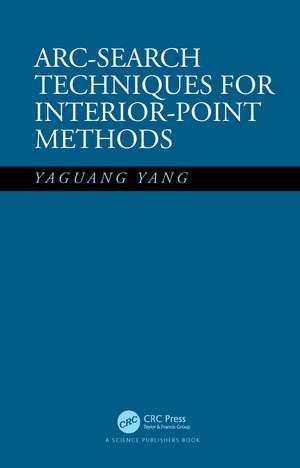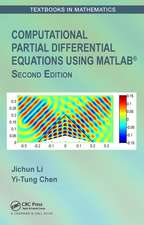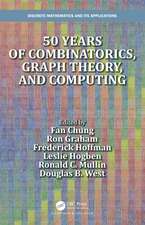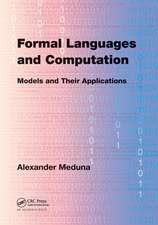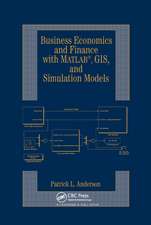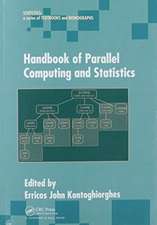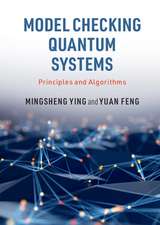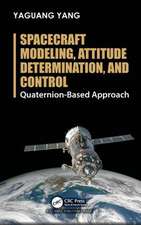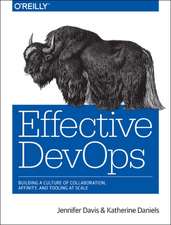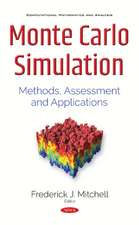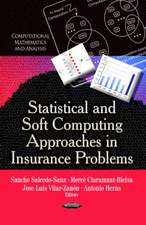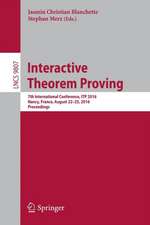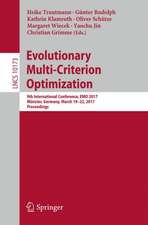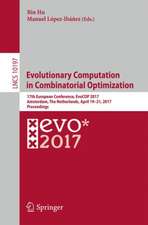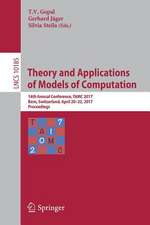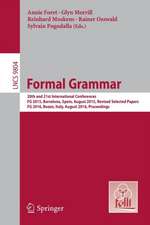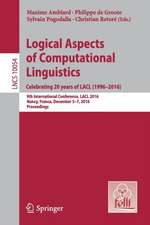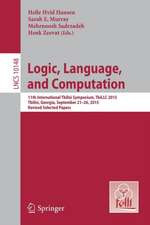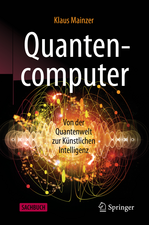Arc-Search Techniques for Interior-Point Methods
Autor Yaguang Yangen Limba Engleză Paperback – aug 2022
This book discusses recent developments that resolves the dilemma. It has three major parts. The first, including Chapters 1, 2, 3, and 4, presents some of the most important algorithms during the development of the interior-point method around the 1990s, most of them are widely known. The main purpose of this part is to explain the dilemma described above by analyzing these algorithms' polynomial bounds and summarizing the computational experience associated with them. The second part, including Chapters 5, 6, 7, and 8, describes how to solve the dilemma step-by-step using arc-search techniques. At the end of this part, a very efficient algorithm with the lowest polynomial bound is presented. The last part, including Chapters 9, 10, 11, and 12, extends arc-search techniques to some more general problems, such as convex quadratic programming, linear complementarity problem, and semi-definite programming.
| Toate formatele și edițiile | Preț | Express |
|---|---|---|
| Paperback (1) | 310.70 lei 6-8 săpt. | |
| CRC Press – aug 2022 | 310.70 lei 6-8 săpt. | |
| Hardback (1) | 1055.68 lei 6-8 săpt. | |
| CRC Press – 27 noi 2020 | 1055.68 lei 6-8 săpt. |
Preț: 310.70 lei
Preț vechi: 447.20 lei
-31% Nou
Puncte Express: 466
Preț estimativ în valută:
59.45€ • 61.34$ • 49.61£
59.45€ • 61.34$ • 49.61£
Carte tipărită la comandă
Livrare economică 26 martie-09 aprilie
Preluare comenzi: 021 569.72.76
Specificații
ISBN-13: 9780367510091
ISBN-10: 036751009X
Pagini: 316
Ilustrații: 11
Dimensiuni: 156 x 234 mm
Greutate: 0.53 kg
Ediția:1
Editura: CRC Press
Colecția CRC Press
ISBN-10: 036751009X
Pagini: 316
Ilustrații: 11
Dimensiuni: 156 x 234 mm
Greutate: 0.53 kg
Ediția:1
Editura: CRC Press
Colecția CRC Press
Cuprins
Preface. SECTION I: LINE SEARCH INTERIOR-POINT METHODS FOR LINEAR PROGRAMMING. Introduction. A Potential-Reduction Algorithm for LP. Feasible Path-Following Algorithms for LP. Infeasible Interior-Point Method Algorithms for LP. SECTION II: ARC-SEARCH INTERIOR-POINT METHODS FOR LINEAR PROGRAMMING. A Feasible Arc-Search Algorithm for LP. A MTY-Type Infeasible Arc-Search Algorithm for LP. A Mehrotra-Type Infeasible Arc-Search Algorithm for LP. An O(√nL) Infeasible Arc-Search Algorithms for LP. SECTION III:ARC-SEARCH INTERIOR-POINT METHODS: EXTENSIONS. An Arc-Search Algorithm for Convex Quadratic Programming. An Arc-Search Algorithms for QP with Box Constraints. An Arc-Search Algorithm for LCP. An Arc-Search Algorithm for Semidefinite Programming. References. Index.
Notă biografică
Yaguang Yang received a BSc (1982) and a MSc (1985) from Huazhong University of Science and Technology, China. From 1985 to 1990, he was a lecturer at Zhejiang University in China. In 1996, he received his PhD from the Department of Electrical and Computer Engineering at the University of Maryland, College Park. He proposed and developed arc-search techniques for interior-point methods. He is currently with the US Nuclear Regulatory Commission.
Descriere
This book discusses one of the most recent developments in interior-point methods, the arc-search techniques. Introducing these techniques result in an efficient interior-point algorithm with the lowest polynomial bound, which solves a long-standing issue of the interior-point methods in linear programming.
